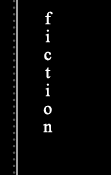



|
{what is existentialism?} jack wilder For the layman, the definition has always been mysterious. There is truth in that opacity. But, deeper into it and there’s a transparency, a throughline that has intrigued and forged me. For this author, existentialism is, at base, the idea that there is an apparent irrational, or non-rational, dimension to existence. To that I have added what I have won: that we, as humans, quite possibly are that irrational, or non-rational, element. We, as the meaning making machines, are simply not able to grasp everything. What’s important here, as every existentialist pointed out, is not the trap. Not the virtue of apathy. Not laziness. To the contrary, the gift is in the formulation of questions. The creation of ideas and solutions. Possibilities to live a good life. Albert Camus sharpened this to a point. Obsessed with the idea of the Absurd, he posited the notion that the fundamental question that all philosophy is concerned with is: suicide. Why shouldn’t we just kill ourselves if the world is so absurd? The Absurd, for Camus, is that fundamental conflict between what we want from the universe (meaning, order, or reasons) and what we find in the universe (formless chaos and sometimes, no reasons). If meaning is not written in the stars for us to understand, then is life not worth living? Historically, it has appeared that there are simply two ways of living in the face of the fact that life is absurd and void of meaning: Suicide or religion. However, Camus pursues an alternative, a third option. That option says that we can indeed accept and live in this world which is devoid of meaning or purpose. Enjoy it. Relish it. Accept and then thrive within it. For Camus, standing and facing the Absurd is where the valor and virtue of living is. I believe that what is matters most is moments. I believe that what is important about this notion is embedded in creation: being active in creating those beautiful moments. In our third issue of syntax, Bob Corbett outlined tenets that pervaded all the thinkers that have been considered existentialist. I believe these tenets, without getting involved in gorgeous writings of the thinkers themselves (namely Nietzsche, Kierkegaard, Sartre and Heidegger), are helpful. 1. (Existentialists) are obsessed with how to live one's life and believe that philosophical and psychological inquiry can help. 2. They believe there are certain questions that everyone must deal with (if they are to take human life seriously), and that these are special -- existential -- questions. Questions such as death, the meaning of human existence, the place of God in human existence, the meaning of value, interpersonal relationship, the place of self-reflective conscious knowledge of one's self in existing. Note that the existentialists on this characterization don't pay much attention to "social" questions such as the politics of life and what "social" responsibility the society or state has. They focus almost exclusively on the individual. 3. By and large Existentialists believe that life is very difficult and that it doesn't have an "objective" or universally known value, but that the individual must create value by affirming it and living it, not by talking about it. 4. Existential choices and values are primarily demonstrated in ACTS not in words. 5. Given that one is focusing on individual existence and the "existential" struggles (that is, in making decisions that are meaningful in everyday life), they often find that literary characterizations rather than more abstract philosophical thinking, are the best ways to elucidate existential struggles. 6. They tend to take freedom of the will, the human power to do or not do, as absolutely obvious. Now and again there are arguments for free will in Existentialist literature, but even in these arguments, one gets the distinct sense that the arguments are not for themselves, but for "outsiders." Inside the movement, free will is axiomatic, it is intuitively obvious, it is the backdrop of all else that goes on. The invaluable and profound assistance that I was given in reading these thinkers has pervaded all my life and I wouldn’t be the same man without these ideas. And, they’re simple. Practical. But the way they were presented, especially by Nietzsche, were florid, imaginative, beautiful. I feel as though, to gain the voluptuous breadth of each thinker, it should be taught. A person needs to understand the historical context and how brilliant and novel these thinkers were. In contemporary times these notions have been absorbed and transmuted. Still, I implore you, pick up Nietzsche’s The Gay Science, it may be the most beautiful, well-rounded book I’ve ever read. But even if you don’t, what the existentialists taught me – what they will teach you – is simple. But profound: Observe. Be aware. Formulate comprehensive questions. Sometimes asking the right question is enough. To get to that point, cognitively, is a small triumph. Now, the duty is to live the question, not necessarily solve it. More than anything else: it is up to you to create meaning. It is up to you and your will to create beautiful moments. It is up to you to find the questions that will lead you to a better understanding of yourself and the world around you. Fear means you’re right where you’re supposed to be. These emotions can direct you to a deeper meaning of questions that you haven’t been living. In emotions, things are being revealed to you. If you’re aware. If you’re listening. They make you concentrate, focus – in a moment when you believe you can’t. Because this is a big, terrifying place if you boil it down – the concept of our existence here is absurd, bewildering. And, it should be. |









